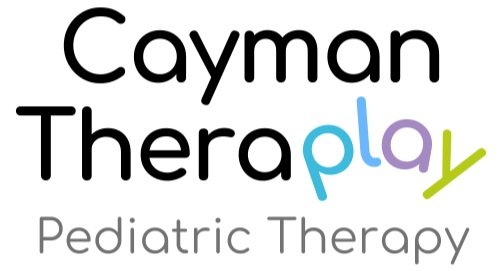Frequently Asked Questions
-
A: We support the growth and development of babies, toddlers, children and teens. Children as young as 3 months can be evaluated by an occupational therapist for concerns related to feeding or motor development. Children as young as 12 months can participate in a speech and language evaluation.
-
A: Autism, dyslexia, dysgraphia, global developmental delays, mild intellectual impairments, social communication disorder, feeding problems, failure to thrive, genetic disorders and other neurodevelopmental conditions
-
A: No, your child may have a delay or require in 1-2 areas and benefit from therapy.
Your child may be at-risk for a developmental delay or a diagnosis and benefit from therapy.
-
A: Therapy is offered individually and sessions are usually scheduled as one clinical hour (50 minutes). Based on the results of the evaluation, a therapy program will be developed for your child and recommendations for frequency of therapy will be made. Children are typically seen once to twice per week and sessions are scheduled at the same time each week. Parent involvement is highly encouraged. A home program will be established so that you and your child can practice new skills learned in therapy.
The clinician will work with your child to address his or her identified goals in a fun and engaging way. We take into consideration your child’s interests and personality to make therapy an enjoyable experience. We work hard, but we play hard, too!
-
A: Play is the focus – we find your child’s interests and passions and build their skills from there, widening their range of play choices and improving their performance. As we interact with them, we use a variety of tools including:
-Suspended equipment Large balls
-Children’s games and toys
-Arts, crafts and dress ups
-Music
-Messy play
-Various pre-academic and academic materials and tools (pencils, crayons, scissors, stamps, books, paper, glue, puzzles etc)
Most children enjoy coming to occupational therapy. Sometimes this takes a little while, as highly anxious children become more accustomed to the environment and they and their therapist work out a rhythm that brings out the best in that child. If your child is prone to tantrums, please know that we are used to dealing with them and will do our best to help your child to experience them less and less over time. We encourage your child to take the lead to explore and problem solve, to stretch to that “just right challenge!” with appropriate support. We model ways of you doing the same at home for the best and fastest outcomes.
Together you and your therapist work out what works best for you, your child and your family. In order to be most effective, it is important to maintain a dialogue with your therapist – therapy can be very confronting at times. We can alter our approach and help you over hurdles only when we know where, when and what type of challenges they are.
-
A: The first step is to contact Cayman Theraplay to receive the required intake forms. Once the intake forms, doctor’s referral, and additional medical reports are returned, a therapist will be assigned for assessment and 1:1 support
-
A: In order to provide targeted, relevant support specific to your child’s developmental needs we must have an assessment at the start of therapy. If coming to Cayman Theraplay with an OT or SLP assessment, an assessment within the past 6-9 months, dependent on your child’s age, could be used to start 1:1 support immediately.
-
A: Our assessments take between 1-4 hours dependent on the age of your child, and your child’s needs.
The assessment includes a personalized report that takes between 2-3 weeks to provide, and a 1 hour report review is included to answer any questions and discuss your child’s support plan.
-
A: Yes! Most plans provide some coverage for occupational therapy and speech-language therapy, however coverage varies. We suggest you contact your insurance provider to verify benefits.
-
A: We bill AETNA, BritCay, Cayman First, CINICO, Pan-Am, and BAF directly.
For all other families, once payment has been received for services, receipts will be provided to reflect the appropriate coding for insurance submission; if expecting insurance coverage for provided services you should submit receipts to your insurance company for reimbursement.
“The therapists are beyond impressive and we have found them more than supportive of our son’s needs. We can’t recommend Theraplay enough!”
— Happy Parent of 5 year old

